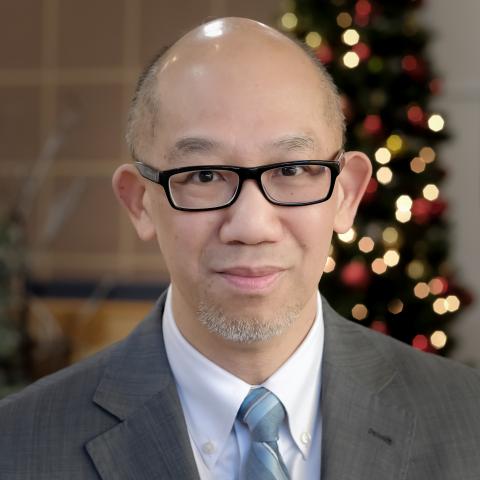Asian Heritage Month challenges us to grow deeper into intercultural awareness and understanding.

May is Asian Heritage Month in Canada, an opportunity to prayerfully reflect on the contributions of Asian Canadians to Canadian society, and to honour and celebrate this important aspect of Canadian history.
I came to know this country called Canada when I was a young person. I finished high school, university, and seminary here. I feel fortunate to call myself a Canadian. Canada is a magnificent country and the people are hospitable and generous. When I am given an opportunity to write something about Asian Canadians in ministry, I write with mixed feelings knowing what early Chinese people had endured. I am a beneficiary of their hard work. Asian Heritage Month provides me an opportunity to reflect upon past history and dream of a fruitful future.
I was born in Hong Kong, a city of seven million; have studied in New York city, an international city of nine million; and am now living in Vancouver, a metropolitan city of 2.5 million people. As much as I enjoy nature, I am always fascinated by cities. I am intrigued by the beauty of world cultures and their richness. Living in a metropolitan city allows me to see it vividly. In our minds, we know Asian people have made significant contributions to the fabric of Canadian society; yet it is still a work in progress to see Asians occupy key leadership roles. How do people like me, who at one point needed to take English as a second language classes, approach ministry and teaching?
While all professions have bottom lines, the bottom line for cultural minorities feels higher. Unlike their White colleagues, cultural minorities feel the need to prove they understand Canadian cultures and the ethos of the city or town where we are located. More often than not, they constantly feel the pressure to prove themselves worthy and competent.
Over the years, I have learned to not underestimate the power of colonial education. Although I take pride in being a member of a progressive denomination such as The United Church of Canada, the old colonial mindset is still a threat to the wellbeing of our churches. When I think about teaching and leading people, I constantly remind myself of the power of unexamined assumptions and privileges. Even seminary education has room to growth in terms of recognizing the contributions of Asian theologians and the diversity of theologies. Like many people, I value traditions. But the educator in me reminds me to critique traditions with transformative motives.
In order to be an effective minister-theologian in the postcolonial age, I need to be mindful of the colonial education that once has formed a crucial part of me and my people. I desire unmasking oppressive beliefs and practices; yet, unknowingly I can slide back to my former mindset where I think like a willing imperialist.
I possess no magic wand, but I suggest creating a culturally sensitive environment is one way to go. It is about acknowledging the presence of multiple cultural norms in the workplace, churches, classrooms, and institutions. To do well in the era of interculturally inspired age demands all individuals exercise sensitivity toward difference; and at the same time, possess the ability to recognize and honor other ways of beings and thinking. Despite the presence of potential prejudices, I know many Asian Canadian ministers who, in order to serve their constituents well, have gone the extra mile in terms of intercultural communications and self-care. Often, ministers during their seminary trainings have been taught the skills that can help them understand the people whom they serve. That training is valuable. But when will the church also spend as much time and effort to understand their ministers so that they can serve well? What is the best way to honour the gifts and talents Asian people bring as the church expands the circle wider?
— Rev. Dr. Alan Lai, South Arm United Church, Richmond, B.C.